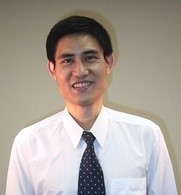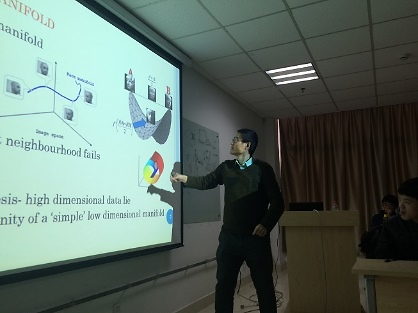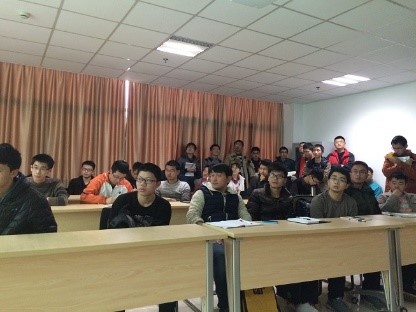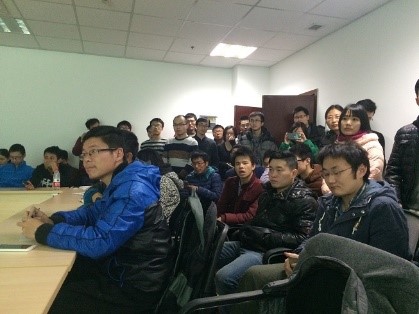佛罗里达大学Dapeng Oliver Wu教授高水平学术前沿讲座
2015年12月28日,IEEE Fellow、佛罗里达大学教授Dr. Dapeng Oliver Wu应电子工程与信息科学系和多媒体计算与通信-教育部微软重点实验室的邀请在科大西区科技实验楼西楼1213会议室做题为《Why Deep Learning Works?》的高水平学术前沿讲座。该讲座中,Dapeng Oliver Wu教授介绍了其研究组在深度学习成功的原因方面的取得的最新研究成果,并与参会师生进行了升入的交流和探讨。

图1 报告人:Professor Dapeng Oliver Wu (University of Florida, USA)



图2 Dapeng Oliver Wu教授做题为《Why Deep Learning Works?》的报告
报告摘要:
Deep learning is getting super hot in both academia and industry nowadays. It has achieved significant success in speech recognition, computer vision, and natural language processing, and quickly becomes one of the most sought-after fields in computer science and electrical engineering. But why is deep learning able to achieve unprecedented performance? One possible reason identified is flattening of manifold-shaped data in higher layers of neural networks. However, it is not clear how to measure flattening of manifold-shaped data and what degree of flattening a deep neural network can achieve. In this talk, I will present quantitative evidence to validate this flattening hypothesis. Specifically, I will present three quantities for measuring manifold entanglement and show experiment results with both synthetic data and real-world data. Our experimental results validate the flattening hypothesis and lead to new insights on deep learning and design of better deep learning algorithms.
报告人简介:
Dapeng Oliver Wu received Ph.D. in Electrical and Computer Engineering from Carnegie Mellon University, Pittsburgh, PA, in 2003. Since 2003, he has been on the faculty of Electrical and Computer Engineering Department at University of Florida, Gainesville, FL, where he is currently Professor. His research interests are in the areas of networking, communications, video coding, image processing, computer vision, signal processing, and machine learning. He received University of Florida Research Foundation Professorship Award in 2009, AFOSR Young Investigator Program (YIP) Award in 2009, ONR Young Investigator Program (YIP) Award in 2008, NSF CAREER award in 2007, the IEEE Circuits and Systems for Video Technology (CSVT) Transactions Best Paper Award for Year 2001, the Best Paper Award in Globecom 2011, and the Best Paper Award in QShine 2006. Currently, he serves on the editorial board of IEEE Transactions on Circuits and Systems for Video Technology, IEEE Transactions on Signal and Information Processing over Networks, and IEEE Signal Processing Magazine. He is the founder of IEEE Transactions on Network Science and Engineering. He was the founding Editor-in-Chief of Journal of Advances in Multimedia between 2006 and 2008, and an Associate Editor for IEEE Transactions on Wireless Communications and IEEE Transactions on Vehicular Technology between 2004 and 2007. He has served as General Chair for IEEE GlobalSIP 2015, Technical Program Committee (TPC) Chair for IEEE INFOCOM 2012, and TPC Chair for IEEE International Conference on Communications (ICC 2008), Signal Processing for Communications Symposium. He served as Chair for the Award Committee, Technical Committee on Multimedia Communications, IEEE Communications Society. He is an IEEE Fellow.
